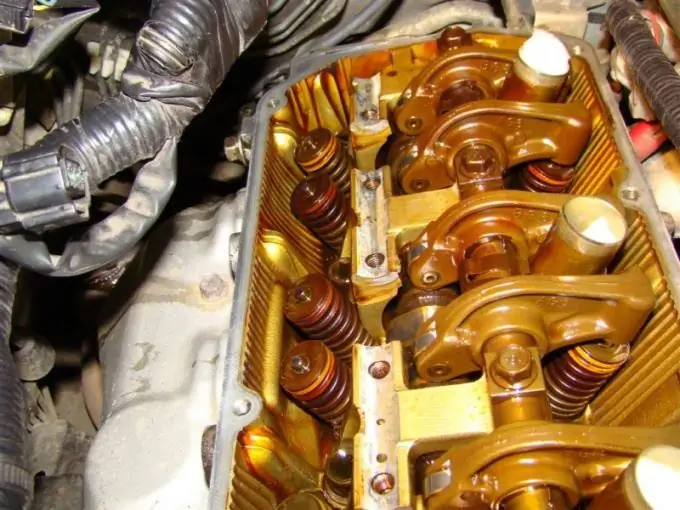- Author Maria Gibbs gibbs@autolifeadvice.com.
- Public 2023-12-16 03:05.
- Last modified 2025-01-22 17:47.
Hydraulic lifters in a car are used to eliminate gaps in the valve drive. The result of the use of hydraulic lifters is that there is no need to adjust the valves during maintenance. They often start knocking when the engine is running. As the coolant reaches operating temperature, the knocking noise may increase or decrease. The reasons for the knocking of expansion joints are described below.

The first reason for the knock of hydraulic lifters is the ingress of air into their supra-plunger cavities. As a rule, this happens in two cases: if the engine oil level in the crankcase is at the upper level or at the lower level. The same situation can occur after long-term parking on an incline.
The second reason is the appearance of dirt on the precision surfaces of the hydraulic expansion joints. This contamination can be caused by very poor quality engine oil sludge or old oil not replaced in time. In addition, foreign particles can enter from a damaged oil filter.
The third reason is the premature wear of the hydraulic lifters. As a rule, this is due to a manufacturing defect.
By the nature of the noise of hydraulic compensators, you can determine the way to eliminate it. If the noise occurs immediately after starting the engine, and when it warms up and the operating temperature disappears, it is necessary to clean and flush these devices. If the noise does not appear immediately and does not change as the speed rises, look for its cause in any other part of the motor, but not in the hydraulic lifters. They are serviceable. The sound of extraneous noise that appears immediately after turning on the engine and changes the tone and strength depending on the speed, signals a malfunction of the compensators. They must be replaced as they are non-separable and cannot be repaired.
Elimination of air trapped in the hydraulic compensators without removing them is carried out in the following order. Check the oil level and top up if necessary. Start the engine and warm it up. Increase the revs sharply to maximum and immediately reduce to idle. Repeat this operation up to 30 times at 15 second intervals until the knock disappears. After achieving the desired result, perform this operation 5 more times and let the engine idle for 3 minutes. If the result is not achieved, clean the hydraulic lifters.






